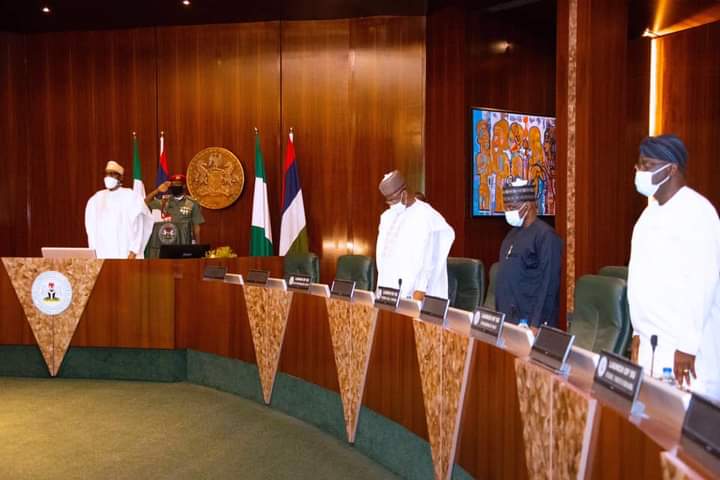When past haunts present
By Mahmud Jega
Which aspect of our past should haunt our present, how much should it do so, how much of a price should we pay, which ones among us should pay such a price, and how much quarter should be given to us when we later moderate our positions and say that we regretted some things we said or did in the past?
The top story in Nigeria last week was the storm swirling around Minister of Communications and Digital Economy Isa Ali Pantami, with some people calling for his head over some past utterances in which he showed sympathy for international terrorist groups. They say that this country’s SIM data base, recently linked to our NINs and about to be coupled to our BVNs, are not safe in Pantami’s hands because he has sympathy for Al Qaeda, ISIS and Taliban.
At first the campaigners faltered because they said Pantami was on CIA’s terrorism watch list. This could not be proved, so they switched gear and called for his inclusion in such a list, as if CIA makes its lists under Nigerian social media guidance. The campaign however led to the digging up of a trove of past videos of Sheikh Pantami’s fiery preaching at various mosques. At least one video vindicated Pantami because he was seen debating with Boko Haram founder Mohammed Yusuf and trying to convince him of the fallacy in Islamic teachings of the group’s anti-Western education stance. That was courageous of Pantami, who was quite young then.
Other videos and audios that the campaigners dug up, however, were quite damaging. The young cleric came through as a highly emotional demagogue who used oratorical skills, knowledge of Arabic and wide reading of Islamic literature to whip up religious sentiments against enemies real and imagined, including the PDP government of the day.
In one of the videos, Pantami wept profusely as he charged that Muslims were being killed without due process in the North East. That statement was interpreted by many as sympathy for Boko Haram. Now, what Pantami complained about was essentially what Amnesty International accused the Nigerian military of, i.e. human rights violations in the conduct of war. Pantami however introduced a religious element to it, saying they were being killed because they were Muslims, as if the Army was an anti-Muslim force and somewhat glossing over Boko Haram’s own atrocities, including the beheading of captured soldiers.
It was a very damaging stance because if that message sank in, and majority of Muslims in Nigeria came to believe that what was happening in the North East was the killing of Muslims, it will fracture the army, hand over victory to insurgents and probably spell the end of Nigeria. In another video, the Sheikh also regurgitated a message that someone sent to him, without verifying it. He said during the Jos crisis of 2008-9, a man phoned him from Jos, said they had no water to drink because Governor Jonah Jang ordered the Water Board to cut off water supplies to Muslim areas.
Jonah Jang’s record in intercommunal relations was not stellar, to put it mildly. I however recall that during the 2000AD Shari’a crisis in Kaduna, water and power supplies failed in Unguwar Dosa, where I lived. I could understand why because there were riots all around and NEPA and Water Board officials could not possibly work as normal. Hence, I fault Pantami for passing off the Jos man’s allegation to a Bauchi mosque audience in a very emotional manner and without verification.
The other serious allegation against Pantami, for which I have not seen the video, is that he expressed sympathy for Al Qaeda and Afghanistan’s Taliban. Pantami was however reported to have apologized for that stance last Friday, which proved to critics that he indeed said it. He attributed his earlier stance to youthful exuberance and incomplete understanding of the situation, saying he started preaching at 13. I think no 13-year-old should be allowed to preach, no matter how much book knowledge he appears to have. Reading of books could not adequately replace age, maturity, wisdom and experience. Where are the Religious Preaching Boards created in every state in 1978 to issue licenses before a man can preach?
Almost everybody makes mistakes during his/her youth. How much of that should be brought up against a person in later life? It depends, I think is the answer. African culture is more forgiving of youthful exuberance than Western cultures. It sounds a bit odd to an African when an American man is accused of sexual crimes decades ago. In Africa here, we also don’t think much of it when a man changes his political beliefs. Politicians here are known to regularly change their beliefs and their political parties with every new circumstance.
It is easier to forgive a man who is powerless, since he is not in a position to wreak further havoc. Forgiveness of past misdeed is harder if the person is holding an important position, for he is in a position to cause harm. Besides, Pantami espoused his views so eloquently, so powerfully and so emotionally that some people will not believe that he will ever change his mind.
To his credit however, Pantami changed his mind spectacularly on some issues. I saw a video where he strongly advised clerics not to accept posts in government because they will thereafter be unable to tell truth to power. He later accepted appointment as DG of NITDA and as minister. True to what he preached, he is now unable to make fiery videos alleging the killing of Muslims, even though much of that is going on in Zamfara, Katsina, Niger and Sokoto states, by non-state actors. The Army’s treatment of captured Boko Haram fighters has not changed very much since the Jonathan days but again, no Pantamian allegation of bias.
Should he resign? This controversy might affect his ability to deliver on his ambitious digital economy plans. There is however a lesson here for our young men and women to learn from. Ten or 20 years from now, a once young Nigerian could become Minister of Police Affairs, only for a video to emerge of him leading EndSARS protests. Or a once young woman could become Petroleum Minister, only for a video to emerge of her holding candlelight vigils to protest fuel price deregulation. O ye young people, moderate your views now and don’t leave copious digital footprints of your antics on the social media.
Mahmood Jega,
Is the publisher of 21st Century Chronicle.


